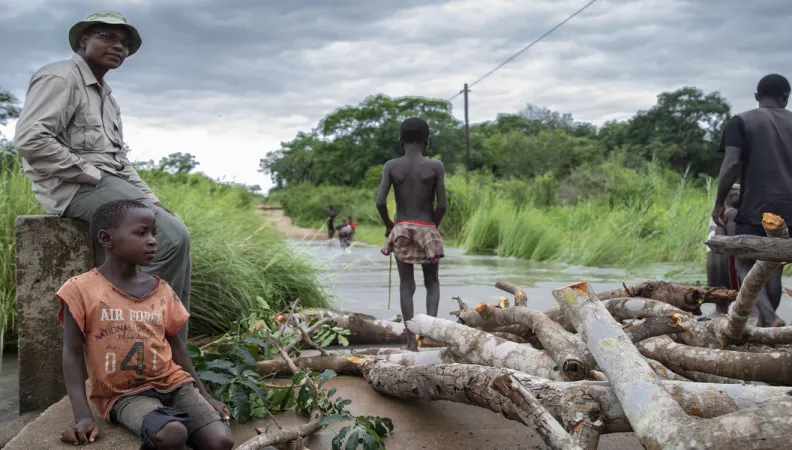Share the page
African Economies 2024: Light at the end of the Tunnel?
Published on

Over the past year, economic growth across the African continent remained higher than global growth rates, but it was slower than in 2022. What explains the slowdown of some, and the advance of others? And what improvements can be made for the year ahead? We speak to AFD’s expert in African economies to find out.
Françoise Rivière is Head of the Economy and Strategy Unit of AFD’s Africa Department, and co-author of the first chapter of “African Economies in 2024”.
What explains Africa’s relatively strong economic performance in 2023? Do the most diversified economies still fare better?
Countries whose GDP depends the least on natural resources (oil, mining, tourism or other sources) outperform those whose economies rely almost exclusively on the exploitation of natural resources. This remains true regardless of the period considered.
Some countries, such as Rwanda, Ethiopia, Côte d'Ivoire and Mozambique, reported growth rates of over 6% in 2023, among the highest worldwide.
For example, in most African countries, operations in the mining sector are limited to extraction, with raw materials being processed elsewhere, resulting in low returns at home.
This suggests a need for policies that aim to diversify African economies and transform these natural resources into more refined products with higher added value, following the example of the first- and second-generation Asian “Tigers”.
By diversifying their activities however, countries can spread risk across multiple sectors. Even if a country only produces one type of raw material, but has an otherwise diversified economy, it can rely on other sectors. Growth in diversified economies is less vulnerable to fluctuations in global prices.
Also, greater regional integration, i.e. trade between African countries and across the African Continental Free Trade Area (AfCFTA), can make countries less dependent on markets outside the continent and can benefit from the fast-growing African market. But continued improvement will depend on policies that improve trade and transport infrastructure.
Despite relatively strong growth in 2023, the average rate of inflation in Africa reached an all-time high.
Yes, inflation passed the 20% mark in 2023 (+5 points compared to 2022). It has gradually eased in nearly half of these countries, but remains high overall, at above 15% in more than a quarter of African countries.
Globally, we are seeing a general trend of disinflation, which is expected to have a positive impact on people’s real income. However, many countries are still being impacted by the Russo-Ukrainian war and disruptions to food and energy supply chains. A large part of the African population is still being hit hard and is struggling to afford essential products.
To combat inflation, central banks have raised interest rates. However, this has made it more difficult for African countries to borrow on the financial markets. What to do?
One possible solution is to mobilize domestic resources more effectively. Tax revenues, which help to finance public policy, have fallen in much of Africa, largely because of the outsized role of the informal economy. AFD is thus launching initiatives to support tax policy, broaden the tax base, exploring other forms of taxation (including natural resource tax, and property tax) and improving the performance of tax and customs authorities.
Nonetheless, the shortfall is immense. As noted by Rémy Rioux in his introduction to “African Economies in 2024”, “an additional $1.5 trillion is needed by 2030 to finance the Sustainable Development Goals.” Financing from donors, especially bilateral funding, has begun to dry up in recent years. The challenge for African countries remains the same: they must develop sustainable, job-creating activities in growth sectors.
There is perhaps still cause for hope. Economic forecasts indicate that interest rates, and therefore the cost of borrowing, will trend downwards in 2024.
Debt levels in some African countries are so high that they are unable to invest in key sectors, such as the social sector and climate change action.
Before the health crisis, Africa experienced twenty years of strong growth, and made tangible economic and social progress (in education, health care and access to essential services). However, the Covid crisis brought this progress to an abrupt halt and many countries, under increasingly tight budget constraints, are struggling to invest in essential sectors.
The hope remains that, once the current situation has passed, a direct result of two major crises (the pandemic and the war in Ukraine), economic conditions in African countries will improve. This is the outcome predicted by the IMF for 2024 and 2025. Public development banks, donors and private banks must continue to support governments so that they can make sound public policy decisions without jeopardizing the future.
The first chapter of ‘African Economies in 2024” is available here in English.
